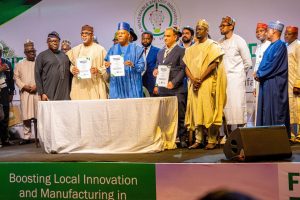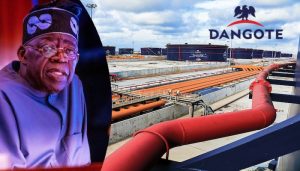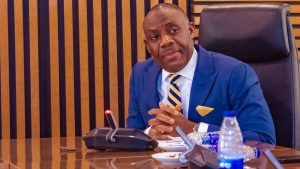
By Amieyeofori Ibim
With the lifting of the State of Emergency and the reinstatement of Governor Siminalayi Fubara alongside the Rivers State House of Assembly, Port Harcourt has entered a new chapter — one of renewed hope and accountability. At the center of public expectation stands the Port Harcourt Ring Road project, one of the most ambitious infrastructure venture in the state’s recent history. The people now look to Governor Fubara to turn that hope into tangible progress.
The suspension of work on the Ring Road barely two months into the six-month period of emergency rule under Rear Admiral (rtd.) Ibok-Ete Ibas left deep scars on the state’s infrastructure and economy. The project, which once promised to ease traffic congestion, open up new development corridors, and link six local government areas, has been silent for too long. Communities from Ogbogoro to Ozuoba, Eneka to Rumuekini, and Egbelu to St. John’s have endured damaged roads, endless traffic snarls, and business disruptions.
When Julius Berger Nigeria PLC signed the N195.3 billion contract in 2023, it was hailed as a turning point for Rivers infrastructure. The administration paid a substantial mobilisation sum, and construction began with visible enthusiasm. But the declaration of emergency rule froze progress, and political uncertainty soon took its toll on both contractor and community. What began as a symbol of renewal became a reminder of neglect.
Now, with normal governance restored, the Fubara administration has an opportunity — and indeed an obligation — to restart the project with urgency and transparency. The Governor’s declaration, upon his return to office on September 18, 2025, that he would resume his infrastructure development agenda must be backed by swift, decisive action. The people have waited long enough.
A first step should be to engage Julius Berger in open dialogue, clear any contractual or payment bottlenecks, and establish a revised but realistic delivery timeline. Disputes over cost variations or administrative decisions made under emergency rule must not stand in the way of progress. This project is not just a matter of public works; it is a test of public trust.
Residents’ frustrations are understandable. In several communities, roads have deteriorated beyond repair. Small businesses struggle to survive as transport costs soar. Flooding has worsened in low-lying areas where construction was left incomplete. The economic and emotional toll of stalled development is evident everywhere. Restarting work is not a favour to the people — it is a duty long overdue.
Governor Fubara’s return offers a chance to reset the tone of governance. The State can rebuild confidence through openness: publish project updates, financial statements, and clear progress reports. Transparency will not only reassure the public but also strengthen partnerships with reputable contractors like Julius Berger, ensuring accountability on both sides.
Julius Berger, for its part, must also show renewed commitment. As a company known for quality engineering, it should re-mobilise fully to site and deliver according to specification. The firm has benefited from substantial public funds and must demonstrate value for money through efficiency and professionalism. Rivers people deserve nothing less.
The Ring Road project is more than a physical structure; it represents the state’s collective aspiration for progress and connectivity. Completing it would ease congestion, spur economic activity, and redefine urban mobility in Port Harcourt. Abandoning it, on the other hand, would send a damaging message about continuity and governance in Rivers State.
Every day that passes without construction costs the state in lost productivity, damaged vehicles, and reduced investor confidence. This is why the Governor’s renewed leadership must translate into action — cranes returning to site, roads reopening, and communities seeing the evidence of government at work.
The end of emergency rule should signal not merely a political restoration but a developmental revival. Rivers people endured six difficult months without representation, without visible governance, and without progress on key projects. They now deserve swift and steady recovery.
Governor Fubara must seize this second chance to reaffirm his commitment to service and delivery. The Ring Road, one of his administration’s signature projects, can still become a lasting legacy — but only if work resumes immediately and proceeds with diligence.
Rivers State cannot afford another round of delay or blame-shifting. The Governor has reclaimed his mandate; now he must reclaim momentum. A completed Ring Road will not just link communities — it will reconnect Rivers people to hope.
_Amieyeofori Ibim is a seasoned Journalist, political analyst and public affairs commentator._
ibimdarlinton@gmail.com
08112095925
About The Author








